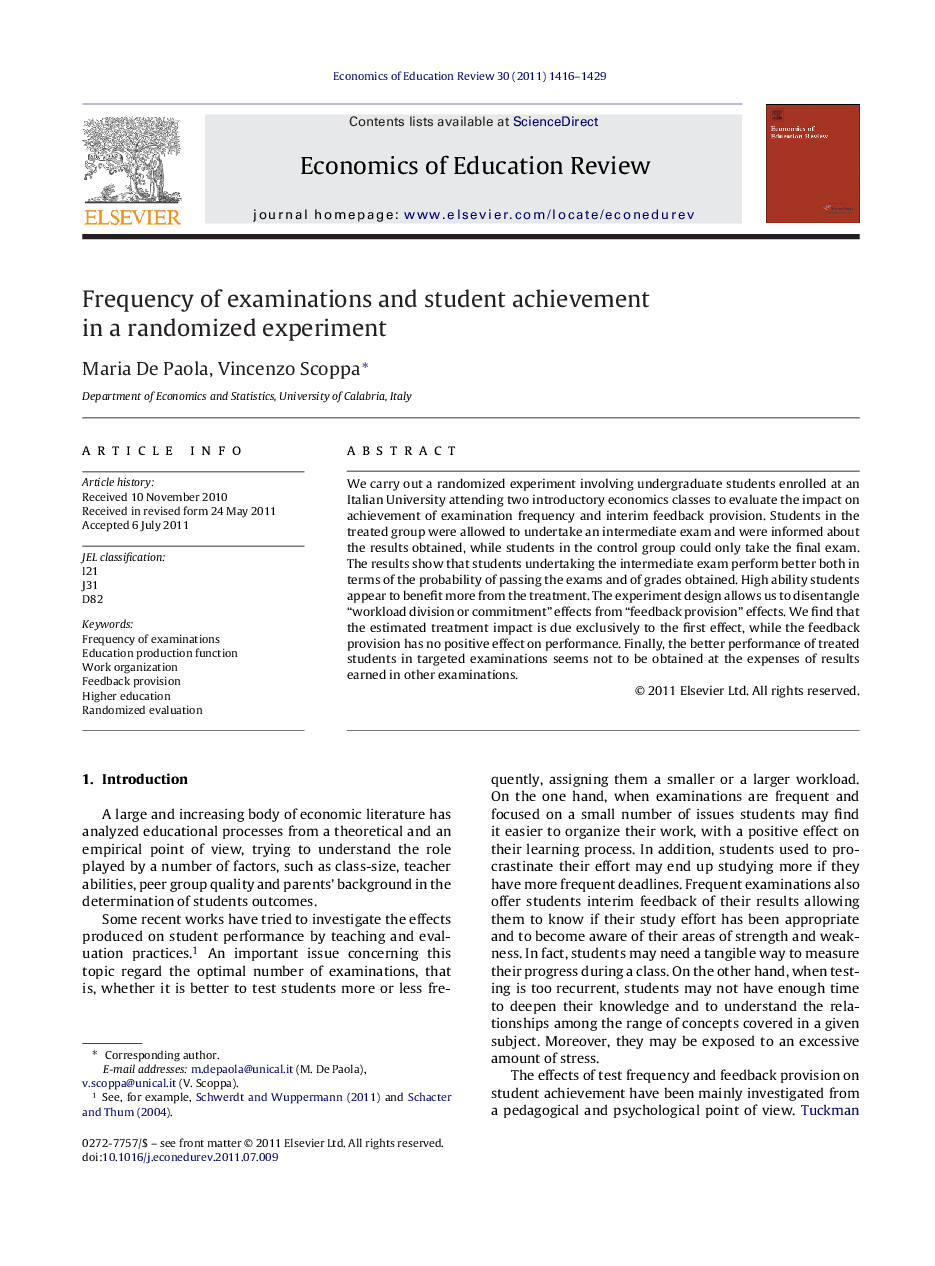| Article ID | Journal | Published Year | Pages | File Type |
|---|---|---|---|---|
| 354531 | Economics of Education Review | 2011 | 14 Pages |
We carry out a randomized experiment involving undergraduate students enrolled at an Italian University attending two introductory economics classes to evaluate the impact on achievement of examination frequency and interim feedback provision. Students in the treated group were allowed to undertake an intermediate exam and were informed about the results obtained, while students in the control group could only take the final exam. The results show that students undertaking the intermediate exam perform better both in terms of the probability of passing the exams and of grades obtained. High ability students appear to benefit more from the treatment. The experiment design allows us to disentangle “workload division or commitment” effects from “feedback provision” effects. We find that the estimated treatment impact is due exclusively to the first effect, while the feedback provision has no positive effect on performance. Finally, the better performance of treated students in targeted examinations seems not to be obtained at the expenses of results earned in other examinations.
► We evaluate the impact on achievement of examination frequency through a randomized experiment involving undergraduate students. ► Treated students were allowed to undertake an intermediate exam while control students could only take the final exam. ► The results show that students undertaking the intermediate exam perform better. ► We disentangle workload division from feedback provision effects: the positive impact is due exclusively to the first effect. ► Feedback provision has no positive effect on performance.
